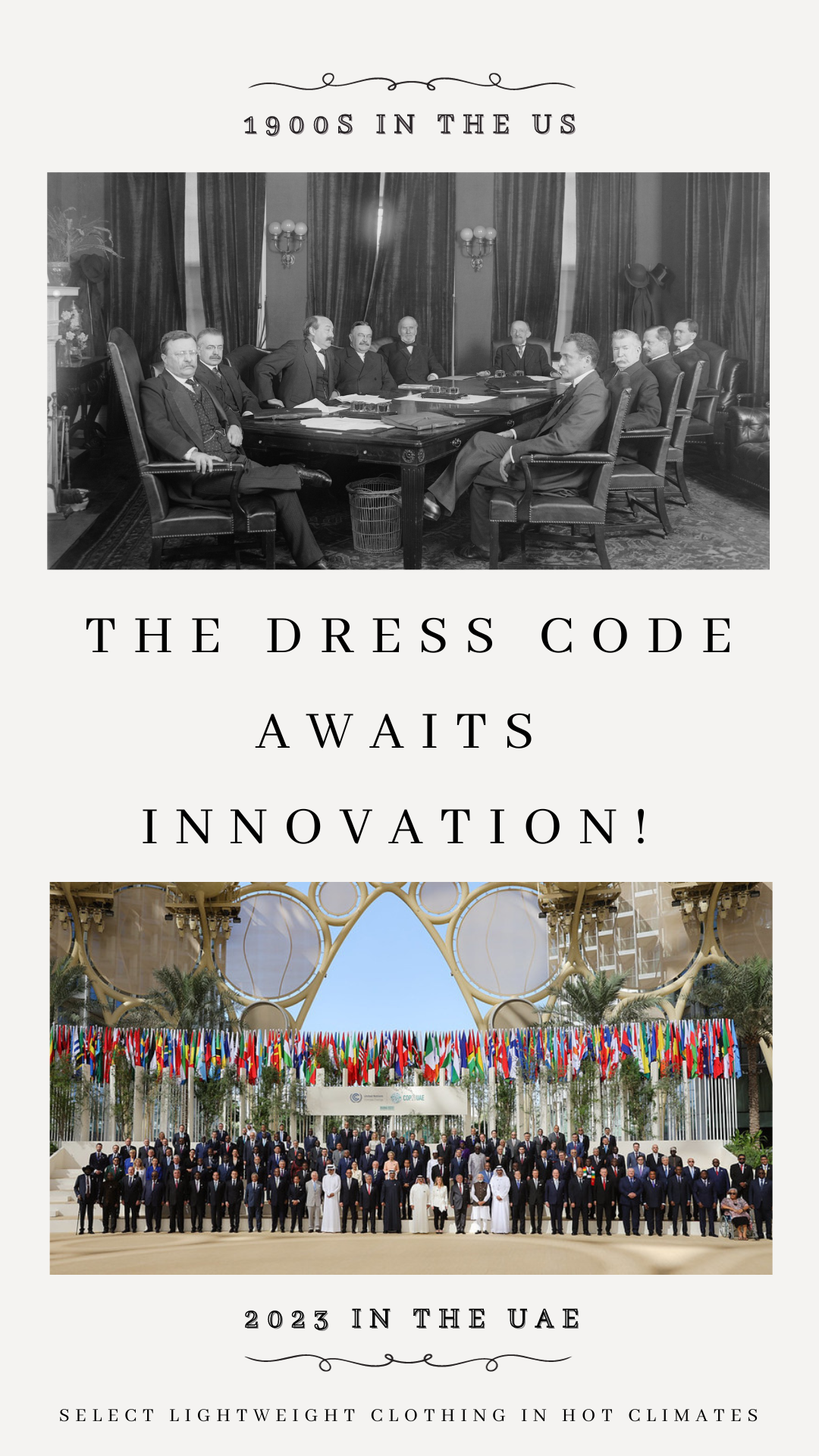The Dress Code Awaits Innovation
By Taka
The primary driver of the current rise in sea levels is attributed to the thermal expansion of seawater, which occurs as seawater warms up. Melting water from glaciers and ice sheets also contributes steadily and poses a real threat of accelerating the rising sea level. Certain island nations are losing ground, and major cities, including Bangkok, are at risk of sinking in the not-too-distant future. Despite extensive media coverage on this topic, many struggle to accept the reality and comprehend its catastrophic implications. In fact, conveying a message through the media is tricky, and even well-intentioned actions can sometimes have unintended consequences. Allow me to share a typical example.
Tuvalu is widely considered one of the first countries likely to be seriously impacted by rising sea levels due to human-induced global warming. Some may recall the impactful statements made by the Tuvalu foreign minister, standing knee-deep in water at COP26. However, I believe I'm not alone in feeling uneasy about the dramatic setting of that speech. Global warming is indeed happening and has led to a rise in sea levels, affecting numerous people’s lives. If your kids were to ask why the foreign minister wore a suit and tie in that situation, what would you say? It's fair to argue that such dramatic settings can mislead certain people and fail to accurately portray the reality. It's speculative, but there are two possibilities after the speech: either the minister changed into lighter attire or remained in the suit and tie and returned to the chilly office.
Our campaign “Dress Light Everyday” aims to make a difference by addressing the prevalence of conventional business attire, as some private companies cling to these dress codes to maintain their corporate image. Moreover, it's surprising that the majority of important conferences, spanning both public and private sectors, require traditional business codes, even those focusing on critical topics like climate change. Admittedly, air conditioners are essential for efficient work environments, but stereotypical business attire is not necessary when addressing pressing global warming issues.
The fashion industry has taken on significant responsibilities to reduce CO2 emissions in its production and logistics processes. However, they should tackle another challenge as business fashion trends often revolve around traditional codes, lacking a universally grounded summer business dress code. Conventional business attire in tropical countries should be considered urgently and innovation is needed in this industry.

